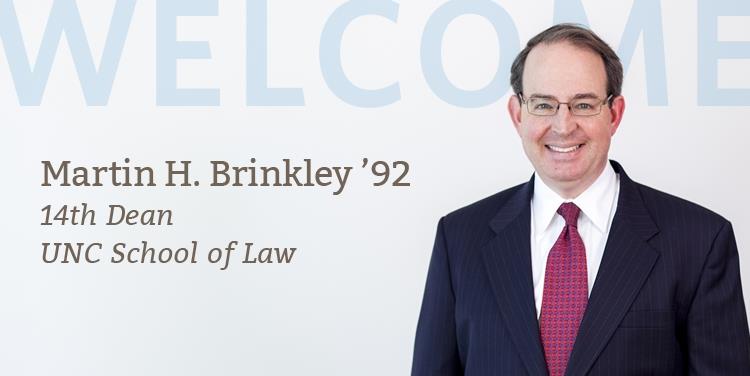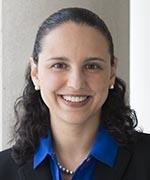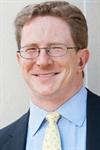
As a student at UNC School of Law, Kaci Bishop ’04 knew she wanted to work with indigent clients. Drawn to humanitarian immigration law, her involvement in the Civil Legal Assistance Clinic, which then included immigration cases, was all the affirmation she needed to know she was pursuing her true passion.
Bishop, now a UNC Clinical Associate Professor of Law, gained hands-on experience in the clinic that helped crystalize her plans and launch her career. She was immersed in real-world law: she interviewed clients and expert witnesses, communicated with opposing counsel, advocated in court, developed client affidavits, managed cases, wrote briefs, worked with co-counsel and interpreters, and performed other tasks.
The work, done through the UNC School of Law Clinical Programs, was the highlight of her legal education.
“The clinic helped shape my career in that it helped me gain experience in and deepen my commitment to the areas of law most appealing to me,” Bishop says. “It also shaped my career in that it gave me experience exercising best practices in how I handled clients’ cases and how I advocated on my clients’ behalf. It helped me have a solid foundation of lawyerly skills and to think both strategically and ethically about my cases.”
This year marks the 35th anniversary of the Clinical Programs. Since 1980, the program has given help and hope to thousands of clients and has offered students diverse opportunities to learn and practice essential legal skills. As importantly, the expansive growth of clinical programs over the past 35 years has provided key reinforcement for the law school’s public service mission.

“Our clinical work emphasizes the importance of poverty-law practice and the duty of lawyers to promote justice for those on the margins of our society,” says Tamar Birckhead, director of clinical programs and associate professor of law. “UNC’s Clinical Program plays a vital role in the intellectual life of the law school, sponsoring programs and speakers, and operating as an independent, nonprofit law firm.”
That independent, nonprofit law firm started on a small scale.
The first clinical course, the Prisoner Legal Assistance Clinic, offered in 1978-79, involved 12 students who represented indigent clients in post-conviction criminal matters and criminal misdemeanor cases. In 1980, UNC School of Law implemented a plan for clinical legal education; Rich Rosen ’76 and Patricia Lemley were named supervising attorneys of the program. Rosen became the first director of clinical programs, a position he held for more than 15 years. The Prisoner Legal Assistance Clinic evolved into the Criminal Law Clinic, which is now the Youth Justice Clinic.
Other aspects of the clinical programs evolved over the years, too, under the leadership of the two other past clinical programs directors, Deborah Weissman, Reef C. Ivey II Distinguished Professor of Law, and Tom Kelley, Paul B. Eaton Distinguished Professor of Law.
Today more than 70 students a year and seven full-time faculty members are now involved, with two Spanish-speaking bilingual program assistants and a suite that includes rooms for client interviews and conferences, a library and student work spaces. The number of clinics has broadened from two that focused on criminal and civil litigation to seven that cover specialty areas, including juvenile defense, domestic violence, immigration, intellectual property, and consumer financial transactions.
The impact is huge.
Seventy students assisting in the clinics, each working about 150 hours a semester, amounts to a combined total of more than 21,000 hours of legal aid in an academic year. Students handle over 200 cases a year for individuals, nonprofits and small businesses, mostly in the Triangle.
Students gain broad, invaluable experience in the clinics.
In preparing cases for the Youth Justice Clinic, Chris Roberts ’00 was involved with research, pre-trial motions, cross examinations, different kinds of arguments and review of evidentiary issues.
“I also began to get a sense of the level of preparation that is necessary to be an effective advocate,” says Roberts, who has been staff attorney with the Public Defender Service for Washington, D.C. This summer, he will become director of the Criminal Defense Clinic at the University of Texas School of Law.
“There were many, many skills that I began to develop in the clinic, but gaining experience in the development of relationships with my clients was perhaps the most important skill moving forward,” Roberts says.
While the clinics provide a chance to practice law, students benefit from an opportunity that’s equally as important as the law itself: practicing compassion.

Beth Posner ’97, clinical assistant professor of law, worked in the Criminal Law Clinic as a 3L student.
“It was the first time I was challenged to be honest about my capacity for empathy and to think critically about what role I wanted to play in the justice system. The clinic raised for me questions that I continue to ask myself in my career as both a practicing lawyer and a teacher,” Posner says.
“They are questions that I ask my students to explicitly confront in their work as well: What kind of professional do you want to be? What part do you want to play in this system that is supposed to be fair but, more often than not, isn’t? How will you let indisputable and systemic racism and misogyny impact your work? How will you combine empathy and critical thinking to be an effective advocate?”
Posner and other alumni were inspired by their clinical work to return to teach in the law school’s Clinical Programs.
“Over the years, we have had many former clinic students come back to teach as adjuncts,” Birckhead says. “They may not have formal teaching experience, but they have had enough work experience representing underserved or disadvantaged populations to know that they enjoy mentoring and coaching others.”
For instance, before becoming a full-time faculty member, Kaci Bishop was an adjunct and visiting clinical assistant professor of law for the Immigration and Human Rights Policy Clinic. She will continue to teach in the clinic in the upcoming academic year.
In addition to the rewards she gained by working with students, her past clinical teaching experience helped strengthen Bishop’s own lawyerly skills.
“Teaching in the clinic helped me become a better practitioner which, in turn, made me a better professor,” Bishop says. “Being able to draw from my experiences as an attorney – but also being able to improve on teaching – cemented my interest in teaching generally, and in teaching in a law clinic specifically.”
-July 6, 2015




























